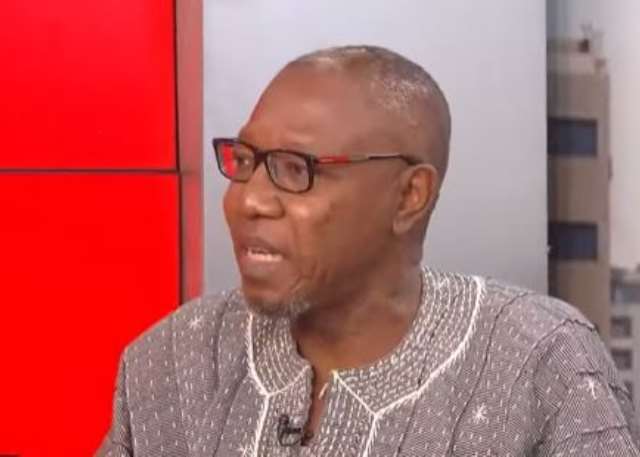Dr. Clement Apaak, the Member of Parliament for Builsa South, has articulated that credible polls ahead of the 2024 General Election indicate a favorable outcome for John Dramani Mahama, the National Democratic Congress (NDC) flagbearer. He argues that these polls are reliable, particularly when considering what he terms the “abysmal and atrocious performance” of the current government led by President Akufo-Addo and Dr. Mahamudu Bawumia of the New Patriotic Party (NPP). Dr. Apaak emphasizes that the failures of this administration will not be overlooked by the electorate, asserting that the negative perceptions regarding the government’s performance are deeply rooted in the public’s consciousness.
The MP highlights a range of grievances that Ghanaians have expressed towards the ruling NPP, including rampant corruption, economic mismanagement, and various socio-economic challenges that have beset the country under their governance. He believes that this discontent will lead voters to reject the idea of granting the NPP a third consecutive term. According to Dr. Apaak, the people of Ghana, whom he refers to as the “true owners” of the Republic, are unlikely to endorse a continuation of the policies that have allegedly led to their hardships. This showcases a deep-seated frustration with the current state of affairs and suggests a strong desire for change among the populace.
Moreover, Dr. Apaak critiques the surveys that indicate possible success for Dr. Mahamudu Bawumia, categorizing them as biased or influenced by the NPP. He posits that these polls do not accurately reflect the sentiments of the wider Ghanaian electorate and asserts that they are products of manipulation by the ruling party in an attempt to project an image of competitiveness against the NDC. He stresses the importance of distinguishing between independent, credible polling and those financed or orchestrated by political entities with vested interests, arguing that this distinction is critical to understanding the political landscape leading up to the elections.
In building his argument, Dr. Apaak also discusses the challenges that the current government has faced, positioning them as self-imposed crises. He identifies issues such as reckless borrowing and soaring costs of living as detrimental practices that have aggravated the everyday experiences of ordinary Ghanaians. The negativity surrounding these economic indicators, he argues, resonates starkly with voters who have felt the pinch of rising fuel prices, increasing utility costs, and what he perceives as oppressive taxation. The MP suggests that these factors collectively destabilize confidence in the government’s capacity to govern effectively and securely.
Beneath his critical stance, Dr. Apaak presents a narrative of hope for the NDC, suggesting that Mahama’s leadership embodies a viable alternative to the current government’s failings. He draws on the history of the NDC, who he argues have a track record of effective governance compared to the contemporary challenges posed by the NPP. By framing the NDC as a party that has previously delivered results for the country, Dr. Apaak seeks to bolster confidence in Mahama’s candidacy and foster a renewed vision for Ghana’s future under different leadership.
As the political landscape in Ghana continues to evolve, Dr. Apaak’s assertions underscore the complexities of voter sentiment and the implications these polls and projections have on the forthcoming elections. His vocal opposition to the NPP and advocacy for the NDC paint a picture of a nation at a crossroads, with much resting on the upcoming electoral decisions. Ultimately, the discourse set forth by Dr. Apaak reflects broader themes within Ghanaian politics and the pressing need for accountability and effective governance, resonating with the electorate as they prepare to cast their votes in 2024.


